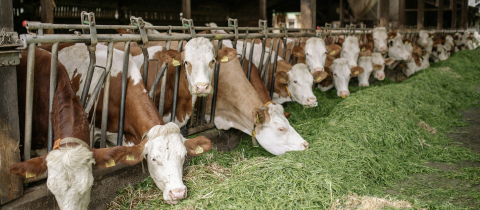Probably what first attracted the Chinese to the odd looking root was its shape. It had a decidedly human appearance and was therefore given the name "ginseng," meaning "man- like." The uncanny resemblance to the body undoubtedly encouraged experimentation with ingestion and led to the first recording of claims about beneficial effects. Ancient Chinese manuscripts speak of ginseng brightening the eyes, opening the heart, invigorating the body and prolonging life. Since that time, the claims have become even more extravagant. Proponents now suggest that ginseng can increase energy level, improve immune function, rev up the sex drive, enhance athletic performance, boost mental ability, lower cholesterol, diminish menopausal hot flashes, alleviate insomnia, act as an anti-inflammatory agent and reduce the risk of cancer. With all these claims there is little wonder that the botanical name of ginseng, "Panax" derives from the name of Panacea, the Greek goddess who supposedly could heal all ailments.
Ginseng is certainly intriguing as a medicinal substance, but it is no panacea! There are several problems right off the bat when one tries to evaluate the potential of ginseng. First of all, there are several species of ginseng. Panax ginseng is native to Asia whereas Panax quinquefolius is found in North America. Then there is Siberian ginseng (Eleutherococcus senticosus), a more distant relative. The chemical composition of these species is quite different, in fact there can be significant variation in the make up of two plants from the same family grown under different climactic conditions. Dozens of compounds have been isolated from each type of ginseng and there are no standardized extraction techniques. The best candidates for biological activity are the "ginsenosides" (also referred to as triterpenoid saponins) some of which can release steroids upon ingestion. But there is often no way to know to what degree these compounds are present in a commercial product. There are unfortunately no labeling requirements but some manufacturers will list the concentration of ginsenosides. But then again, at least 11 ginsenosides have been identified and their relative activities are unknown. The labeling problem was illustrated dramatically when Swedish researchers examined 50 products sold in 11 countries and found that six samples contained no active ingredient and in the others the concentration of ginsenosides ranged from 2 to 9%. One sample, sold in the U.S. contained no ginseng derivatives at all but had undeclared ephedrine, a potentially dangerous stimulant. This came to light when an athlete was accused of doping himself based upon a positive urine test for ephedrine. He realized that the only possible explanation was the ginseng preparation he had taken. In some cases an extract of Periploca sepium (Chinese silk vine) has been passed off as Siberian ginseng. And remember that Siberian ginseng isn't even ginseng! A 30 year old nurse in Toronto who was taking "Siberian ginseng" for irritability and mood swings during pregnancy gave birth to a baby with thick pubic hair as well as hair over the entire forehead. Periploca sepium has obvious hormonal effects. There is some concern that ginseng itself contains some estrogenic compounds which may be undesirable for people with a family history of breast cancer. In fact vaginal bleeding has been seen in heavy ginseng users, suggesting hormonal activity. Painful breasts, skin rashes, insomnia and diarrhea have also been reported. Ginseng may also affect glucose levels in the blood, certainly a concern to diabetics. Some of the compounds found in ginseng are similar to digitalis, a drug used to treat congestive heart disease. Conceivably, then, certain ginseng preparations can also have an affect on the heart and should not be used indiscriminately by heart patients.
The possible beneficial effects of ginseng have been well studied in the laboratory and in animals. There are some interesting findings. Ginseng, for example, has been shown to improve memory in rats. Mice placed on a ginsenoside rich diet before being exposed to colon cancer carcinogens show a lower incidence of tumors. As far as humans go, one Korean study suggested that ginseng users had significantly lower cases of cancer. Fresh ginseng extract and powder were associated with reduced risk but ginseng juice and tea were not. Of course, the ginseng users may have had some other life style effect that accounted for the difference in cancer rates.
The most intriguing experiments about the effects of ginseng have involved studies of endurance. Mice given ginseng extract will run for longer times on a treadmill and will swim longer before becoming exhausted. Unfortunately, there are not many well controlled human studies that corroborate this effect. One study did show that middle aged Swedish men who received ginseng for eight weeks had a greater capacity for physical work. Russian and Japanese researchers have demonstrated increased stamina and endurance with ginseng consumption. In light of such findings, scientists have started to describe ginseng as an "adaptogen," meaning that it may somehow enhance the body's ability to adapt to physical stress and possibly to mental stress. Students have spoken of taking ginseng to reduce the feelings of stress associated with exams. This may work, but I suspect not as well as studying. While ginseng's potential is certainly tantalizing, the fact is that we do not really know which components are the active ones. Even knowing may not be of much help because the composition of commercial preparations is in general a mystery. Perhaps the best way to try ginseng is to consume about 2 grams of fresh powdered root a day. This will not be cheap; ginseng is the most expensive legal crop in the world! A good alternative is a standardized extract containing at least 7% ginsenosides. This may lead to feeling more energetic and may actually increase physical endurance. But keep in mind that potential cross reactions between ginseng and other medications have not been adequately investigated and that as a rule, skepticism is warranted if something sounds too good to be true. Remember that Panacea, the goddess who could heal every ailment, was a mythological character.







